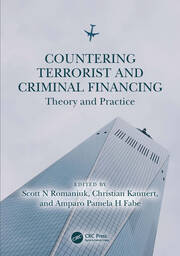COUNTER-TERRORISM PERSPECTIVES (CTP) deals with Armed Insurgencies, Islamist Violence, Jihad and Radicalisation issues and other forms of Asymmetric Conflicts and policy responses in South Asia and beyond.
-

Executive Summary: Islamist groups, including al-Qaeda in the Indian Subcontinent (AQIS), Islamic State in Khorasan Province (ISKP), and Islamic State in Hind Province (ISHP), attempted to destabilize India during the legislative elections from April to June with threats, anti-Hindu/anti-democratic propaganda, and terrorist attacks. Most of these efforts were foiled, but collectively, the actions represented a large-scale attempt to destabilize Indian society.
-

Executive Summary: On March 7, India’s Ministry of Home Affairs designated 41-year-old Kashmiri militant Mohammad Qasim Gujjar as a terrorist. Gujjar has been involved in multiple high-profile attacks, financed and supplied arms to terrorists, and is a major recruiter for the Pakistan-based Lashkar-e-Taiba. Gujjar has been especially effective at radicalizing relatives of deceased militants.
-

On October 23, 2022, a suicide car bomb exploded outside the Kottai Eswaran Hindu Temple of Coimbatore in Tamil Nadu State, India. The perpetrator, Jameesha Mubeen, died in the explosion. A month later, on November 19, 2022, a homemade improvised explosive device (IED) detonated in an auto-rickshaw in the city of Mangaluru in Karnataka State. The driver, Mohammed Shariq, was burned in the attempt.
-

- Executive Summary: India’s National Investigation Agency (NIA) arrested over 180 people in 2023 for involvement in jihadist terror cases, 65 of which were associated specifically with IS, as part of a broader strategy to disrupt IS’s influence in India.
- In December 2023 alone, the NIA conducted widespread raids across the country, arresting dozens of individuals linked to Islamic State (IS) networks and seizing weapons, explosives, and propaganda materials.
-

The transnational Islamist political movement Hizb ut-Tahrir (HT) has increased its India-centric propaganda. HT is often described as a non-violent extremist group seeking to unite the global Muslim community under one Islamic caliphate. The arrests of several HT operatives from Central and South Indian states, including Madhya Pradesh, Chhattisgarh, Telangana and Tamil Nadu, confirmed HT’s shadowy presence in the country. HT is attempting to revive the group’s past pro-Islamic state and anti-India discourses through its preaching campaigns.
-

Tahawwur Hussain Rana, a Canadian businessman originally from Pakistan, was convicted in a US court in 2011. Rana was charged with providing material support to Lashkar-e-Taiba (LeT) in Pakistan and for conspiring to attack the Danish newspaper Jyllands-Posten’s offices in Copenhagen and Aarhus. This followed their publishing of controversial cartoons depicting the Prophet Muhammed in 2005. In 2013, Rana was sentenced to 14 years in a US prison. [1] Rana, however, was acquitted of a third charge, which had alleged his involvement in the November 2008 Mumbai terrorist attacks.
-

-

-

In mid-2022, Bangladeshi police stumbled upon a burgeoning Islamist militant conglomerate called Jamaatul-Ansar-fil-Hindal Sharqiya (Assembly of the Helpers in the East of India, or “Jamaatul Ansar”) while investigating youth disappearances in the country. More than 50 youths have reportedly left their homes to join Islamist groups under the pretext of religious migration (hijra) in the last two years (Parthom Alo, September 25, 2022).
-

In mid-December 2022, the Maldivian Presidential Commission on Deaths and Disappearances (DDCom) submitted its final report on the disappearance of a prominent progressive journalist, Ahmed Rilwan Abdulla. Almost eight years after Rilwan mysteriously vanished from the capital Male’s suburb of Hulhumale in August 2014, the investigating agencies have connected several missing dots to reveal how he was harassed, abducted, tortured, and decapitated (Sun, December 15, 2022).
Paxton ported to drupal by DropThemes.in
